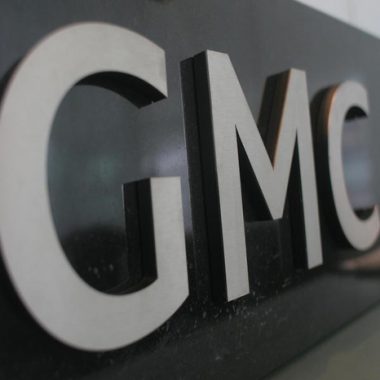60% of GP trainers work extra hours on a daily basis to manage workload

Three in five GP trainers work beyond their rostered hours on a daily basis to fit their training roles around their daily duties – more than twice as many as trainers in other specialties – according to a GMC survey.
The annual training survey of trainers in foundation, core and higher specialty programs found that 60% of 3,615 GP trainers questioned have to work extra hours everyday to manage the workload of being a trainer.
But across all specialties excluding general practice, this falls to 23%.
GMC chief executive Charlie Massey said trainers must ‘receive the resources and time they need to meet their education and training responsibilities’.
He added: ‘It is not right that there is such a reliance on trainers always somehow finding the time, often their own time, to keep the system going.
‘We mustn’t take the continued high quality of medical training across the UK for granted, and we cannot afford to lose the services of trainers by abusing their dedication and goodwill.’
Meanwhile, the survey confirmed early indications that 53.6% of all trainees said that they work beyond their rostered hours on a weekly or daily basis.
While this figure is down compared with 58% who said the same in 2016, 22.4% of trainees still said they felt short of sleep at work on a daily or weekly basis.
Dr Helena McKeown, BMA GP committee lead on education, training and workforce, said the Government needs to ‘take the plight of GP trainees more seriously’.
She said: ‘The BMA has consistently warned the Government that the workload and funding pressures on GP services are damaging both patient care and the working conditions of GPs, including trainees.’
She added: ‘GP training has been funded inadequately for some time, a situation which has affected the delivery of high quality GP training.
‘In this climate, it is no surprise that GPs are having to work beyond their normal working hours to deliver training and that GP trainers are also having a similar experience.’
The survey’s findings come after Pulse revealed that Health Education England budget cuts are affecting training available for qualified GPs and trainees – with courses being cut due to the squeeze, and trainees having to train each other in one area of the country.
These were the first reported cuts since Pulse revealed that HEE was facing a 30% squeeze to its running budget and had been offering GP trainers voluntary redundancy.
It also comes as Pulse reported that HEE was spending funds taken from education programmes on the training of support roles, such as physician associates.
| How often (if at all) have you worked beyond your rostered hours? | ||||||
|---|---|---|---|---|---|---|
| Daily | Weekly | Monthly | Less than once | Never | Total asked | |
| GPs | 60.44 | 27.25 | 3.24 | 3.71 | 5.37 | 3615 |
| Total excluding GPs | 23.02 | 50.80 | 15.14 | 8.94 | 1.81 | 20,928 |
| Anaesthetics | 7.76 | 53.13 | 28.01 | 10.25 | 0.85 | 3181 |
| Emergency | 18.90 | 56.71 | 16.36 | 7.15 | 0.88 | 1021 |
| Medicine | 31.84 | 48.61 | 10.68 | 6.89 | 1.98 | 5600 |
| OBGYN | 23.37 | 52.10 | 14.98 | 8.31 | 1.23 | 1215 |
| Occupational | 33.33 | 47.92 | 10.42 | 8.33 | 0.00 | 48 |
| Opthamology | 18.24 | 54.29 | 14.81 | 10.73 | 1.93 | 466 |
| Paeds | 26.22 | 49.80 | 13.56 | 9.13 | 1.29 | 1785 |
| Pathology | 34.31 | 43.74 | 9.43 | 9.26 | 3.26 | 583 |
| Psychiatry | 22.75 | 45.89 | 14.10 | 12.89 | 4.37 | 2312 |
| Public Health | 25.52 | 46.90 | 14.48 | 9.66 | 3.45 | 145 |
| Radiology | 23.49 | 53.77 | 12.64 | 8.58 | 1.51 | 1060 |
| Surgery | 20.81 | 53.76 | 15.26 | 8.88 | 1.28 | 3512 |
Source: GMC annual training survey
Pulse July survey
Take our July 2025 survey to potentially win £1.000 worth of tokens











